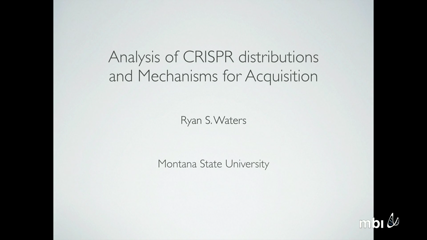MBI Videos
Ryan Waters
-
 Ryan Waters
Ryan WatersAn adaptive immune system is important to ensure appropriate, precise, and rapid response to a foreign pathogen. While adaptive immune response has traditionally only be attributed to vertebrates, it has recently been discovered that some bacteria also demonstrate a form of dynamic immunity. The CRISPR (clustered regularly interspaced short palindromic repetitions) system is made up of short phage homologs which, with the help of Cas (CRISPR-associated) genes, work to recognize and silence exogenous genetic material. Additionally, when new foreign genetic material is recognized, the nucleic acid sequence can then be incorporated into the CRISPR gene. The mechanisms for acquisition and recognition are still not well understood. We are interested to look at ‘ideal’ CRISPR distributions and to explore how different acquisition strategies might lead to different CRISPR distributions. Additionally, we are interested in the role of stochastic effects in bacterial CRISPR acquisition and how this diversity may be important to community survival.
